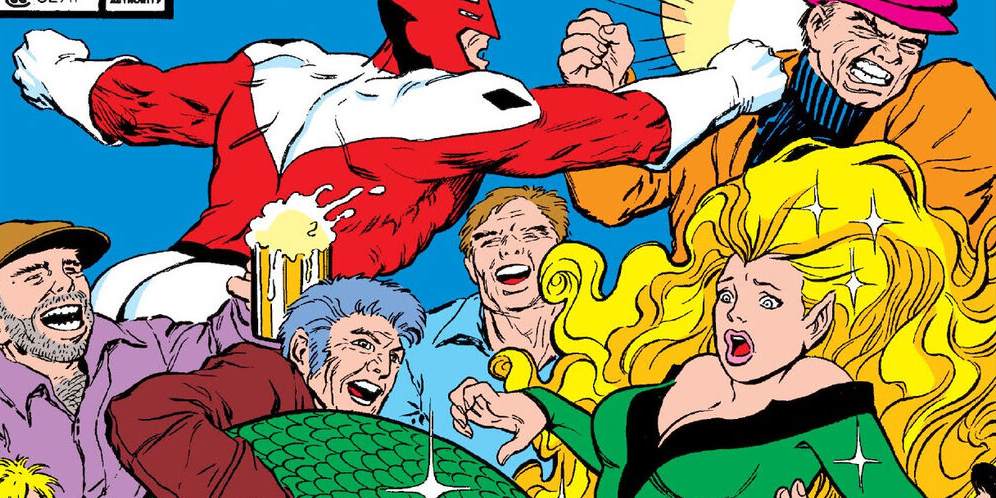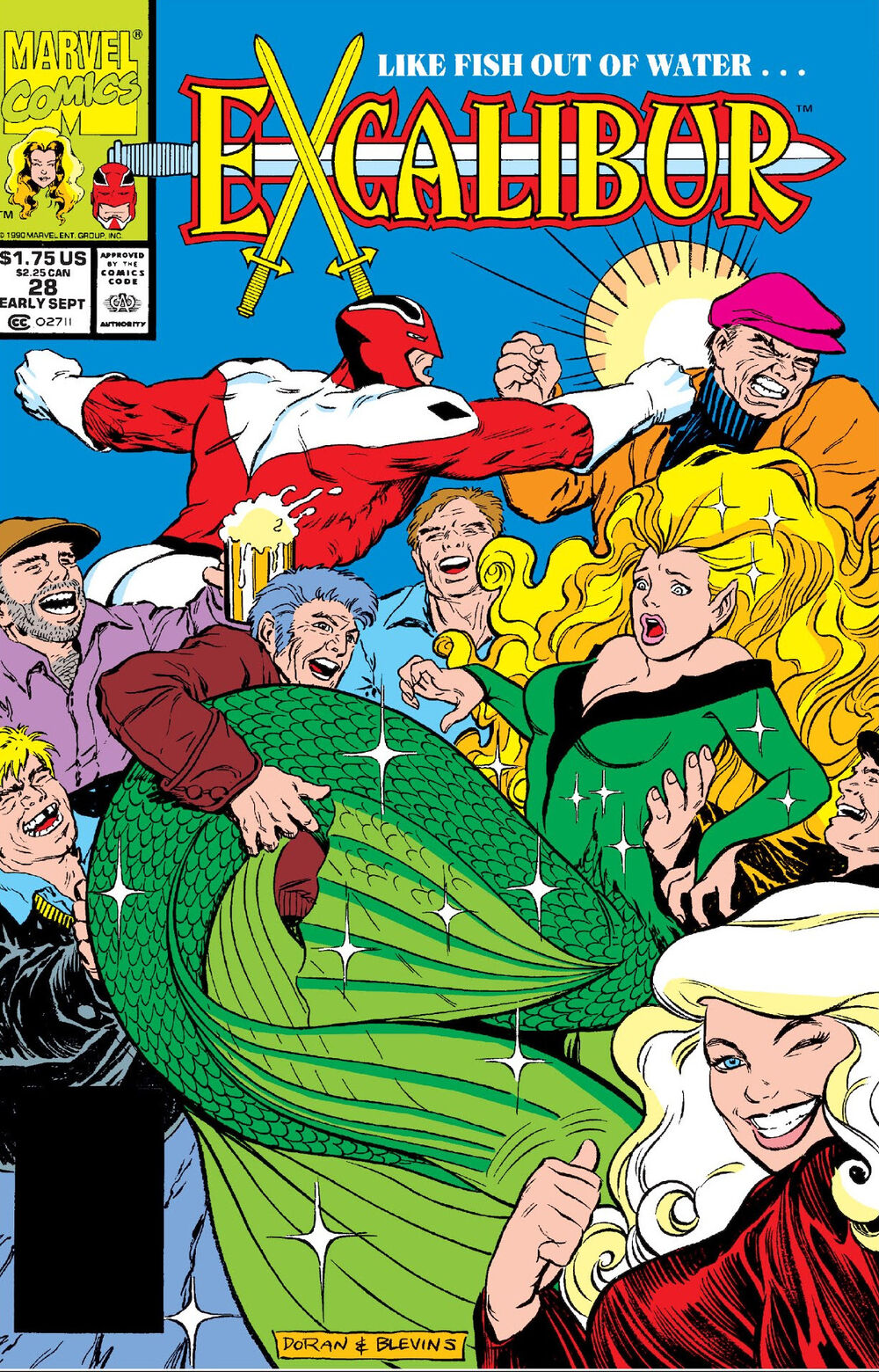Excalibur #28
“The Night They Tore Down the Gilded Lady”
Writer: Terry Austin
Pencils: Colleen Doran
Inks: Bret Blevins
Colours: Brad Vancata
Letters: Phil Felix
Editor: Terry Kavanagh
Original publication date: September 1990
There’s a reason they say you can’t go home again—because sometimes, the crowd at your old college bar doesn’t remember you, and your girlfriend has to shapeshift into your twin brother and shotgun a pint to convince the locals you’re not a “sissy.” All of which can only mean one thing—Anna, Mav, and Andrew are talking about Excalibur #28, “The Night They Tore Down the Gilded Lady” with specialist in gender & superheroes and newly minted Excalibur fan, Dr. Esther De Dauw! In which we’re each surprised by how much we enjoyed our date with Brian and Meggan’s surprisingly joyful date night <3 Also, Anna terribly mispronounces “Leicester” and forgets to fix it in post.
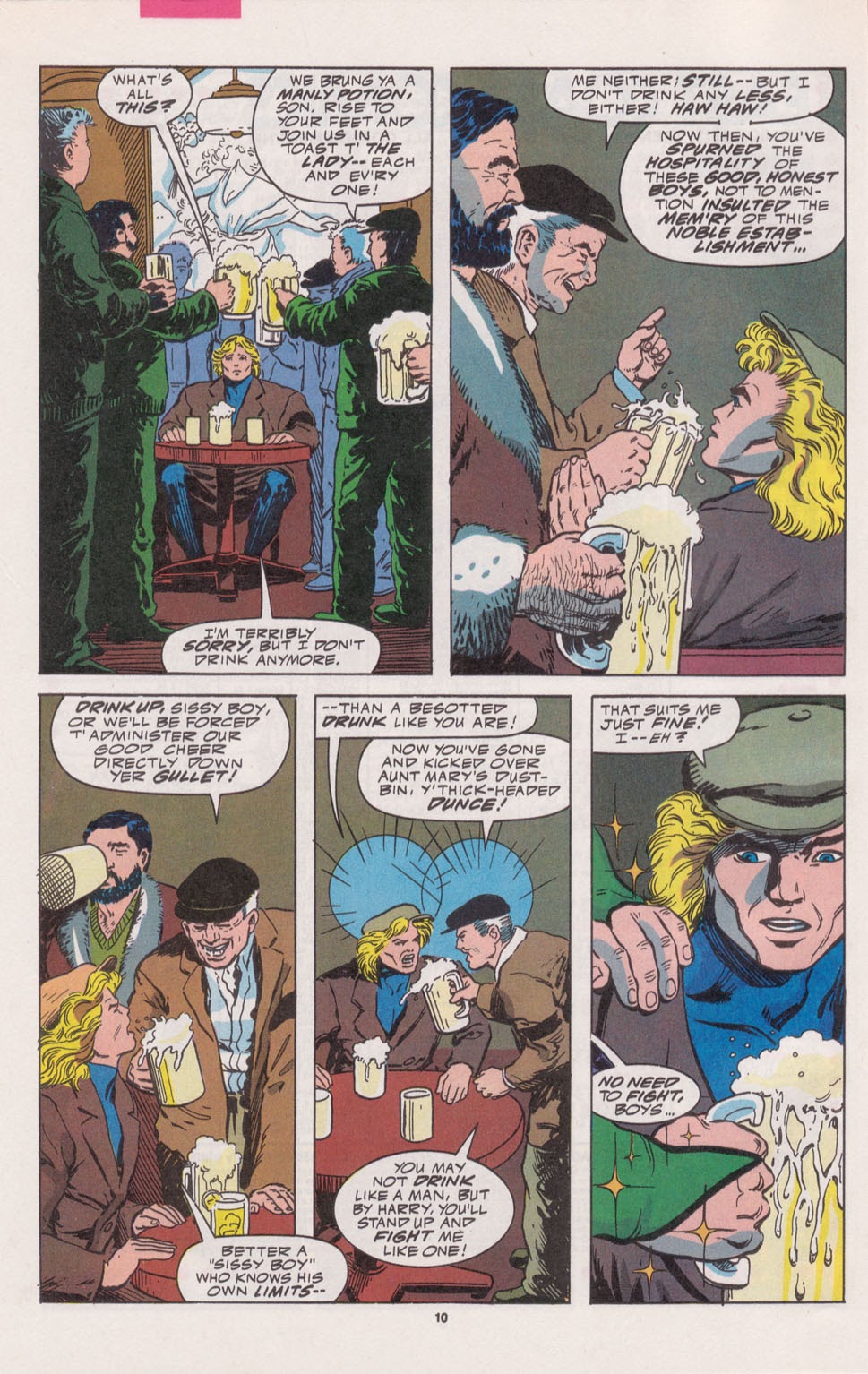
On toxic masculinity:
“Toxic masculinity takes those traits that our culture considers to be masculine to their extreme. Eventually, that harms men themselves or drives them to harm others. Superheroes are often wrapped up in toxic masculinity.” -Esther
“Brian genuinely feels like a man in crisis. And it’s the crisis of toxic masculinity. We live in a culture where men are pushed to prove that they’re manly enough, and there’s a constant moral panic about how men aren’t manly enough. Brian’s story has echoes of that.” -Esther
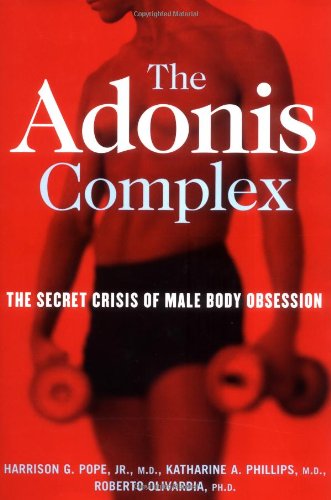
On superbodies and their consequences:
“Superheroes have insane bodies, with insane musculature, that’s just not possible in most people’s lived realities. And when comics gets transferred to the screen, you see superstar actors who take a year off just to bulk up for a single movie. That creates a new idea of what a masculine body looks like.” -Esther
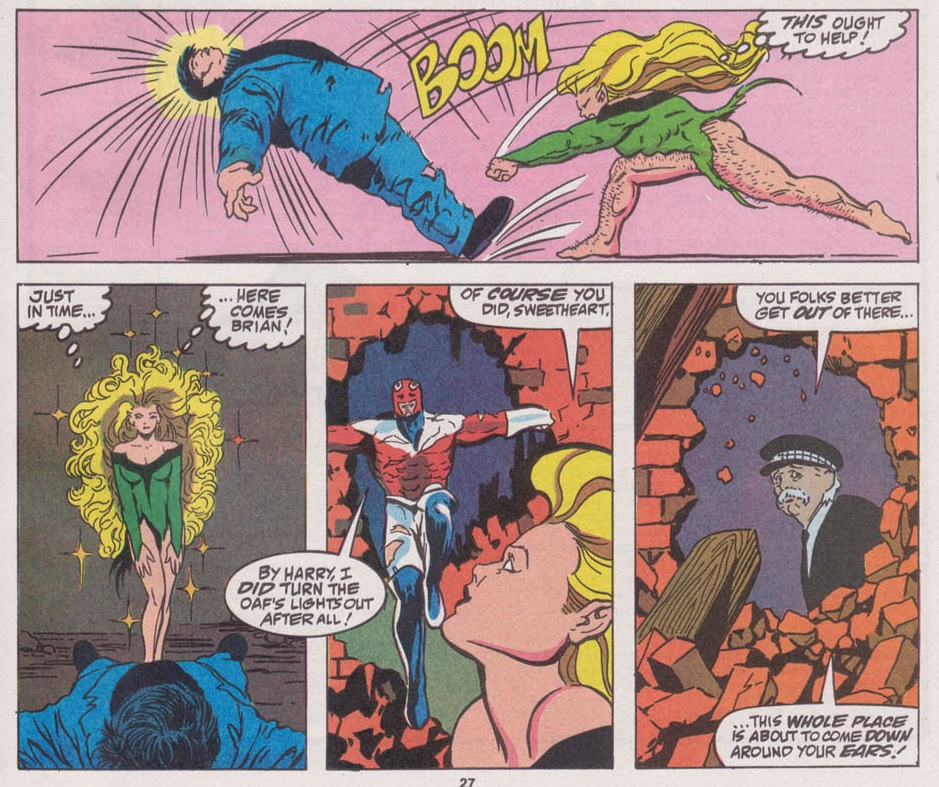
On Meggan covering for Brian:
“Meggan knocks out Bash and then pretends that Brian did it. So we find Meggan being very much aware of the fact that Brian is in a crisis of masculinity. She knows he’s feeling self-conscious, and is trying to mitigate the feelings of shame and anger associated with his crisis. His crisis puts pressure on her to make him feel like a man.” -Esther
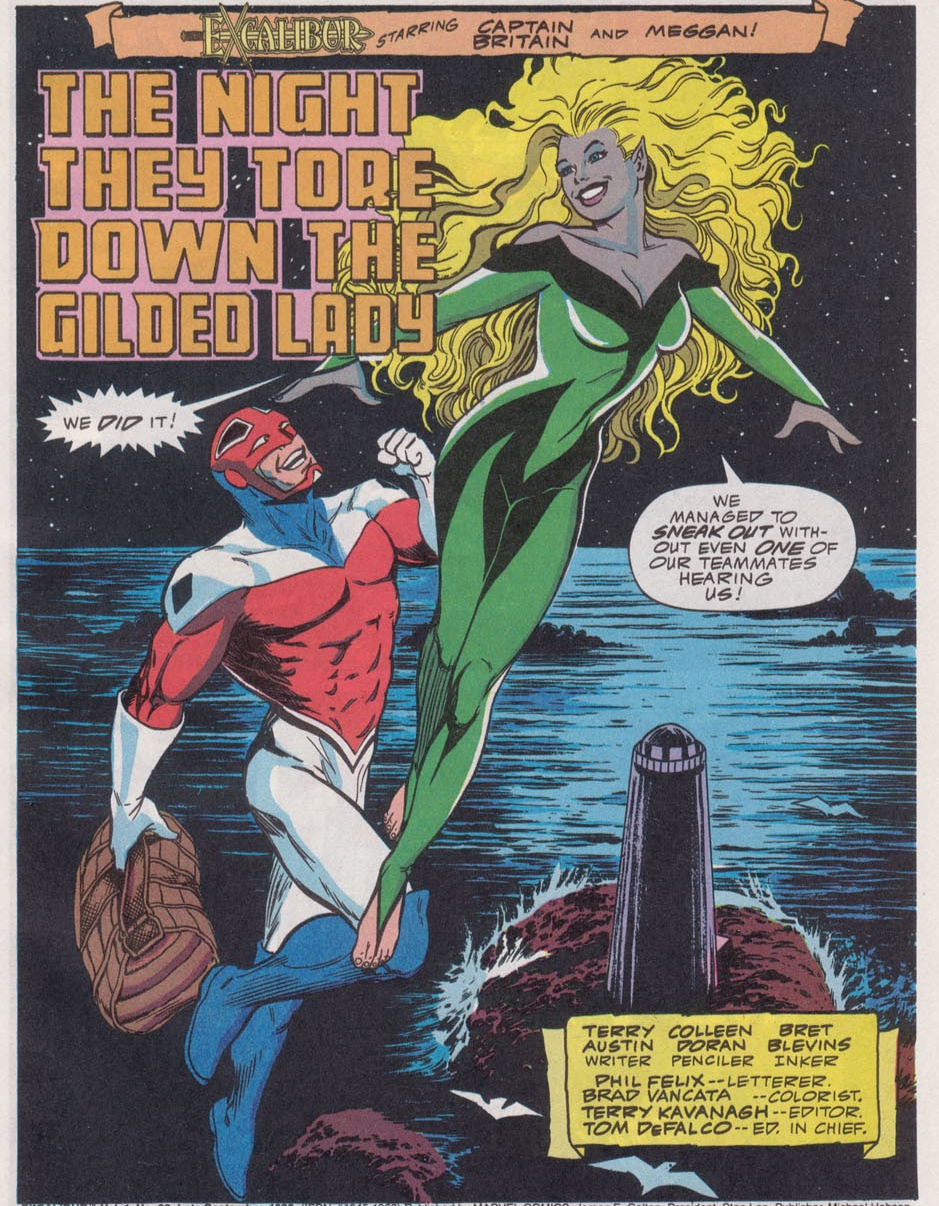
On toxic relationships:
“I still don’t love Brian and Meggan’s relationship. But this issue helps us understand it. if you’re going to write a story about a woman in an emotionally abusive relationship, there’s always a ‘he’s so nice when we’re alone.’ This is Brian being nice when they’re alone.” -Mav
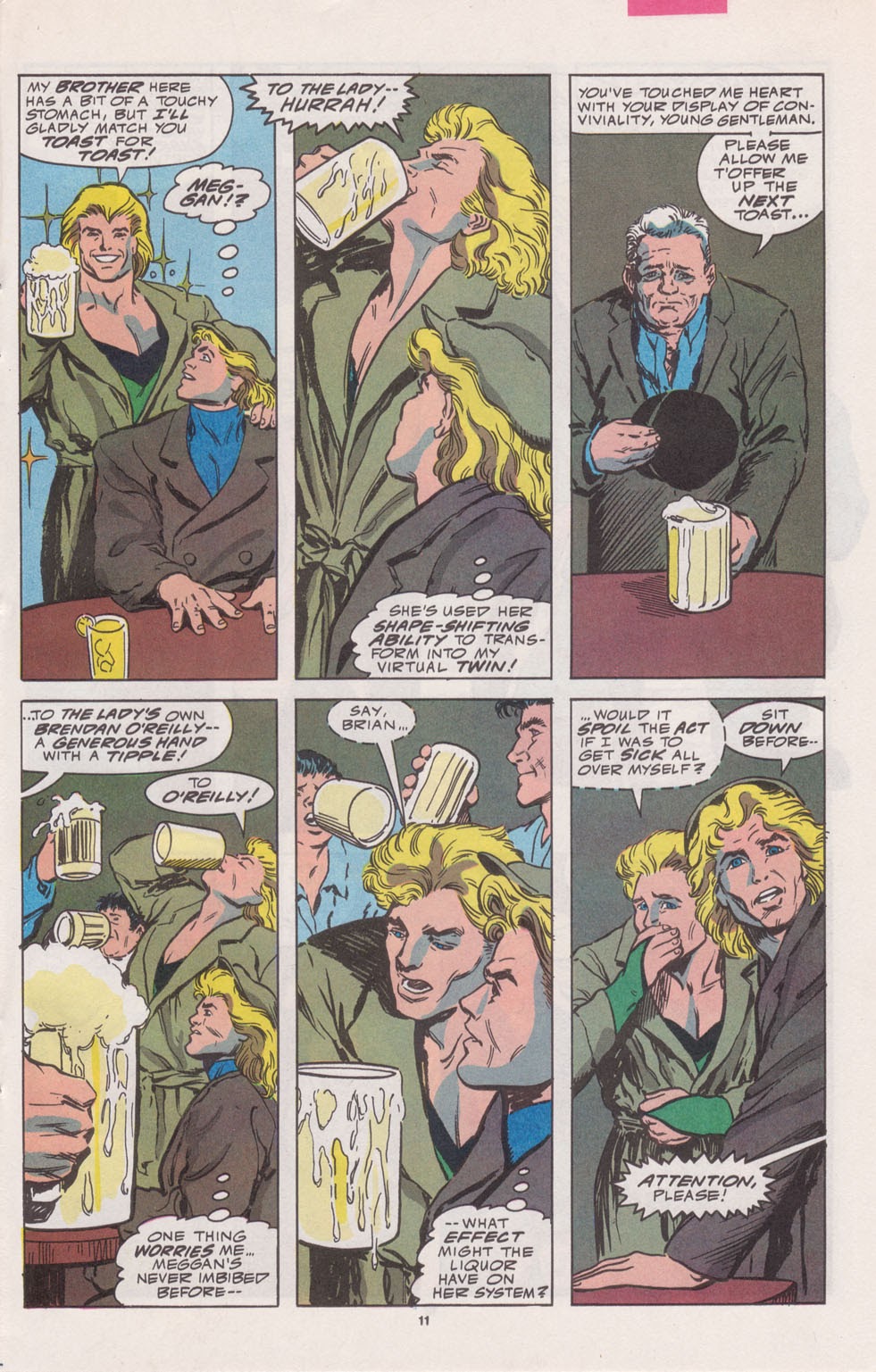
On Meggan becoming Brian’s twin:
“Meggan switches into Brian’s twin brother without any anxiety about what that might mean for her gender identity. Brian has a moment of surprise, then thinks it’s amazing. It’s a fascinating glimpse into the possibility of a private scenario they might have already tried.” -Estherg for.” -Mav
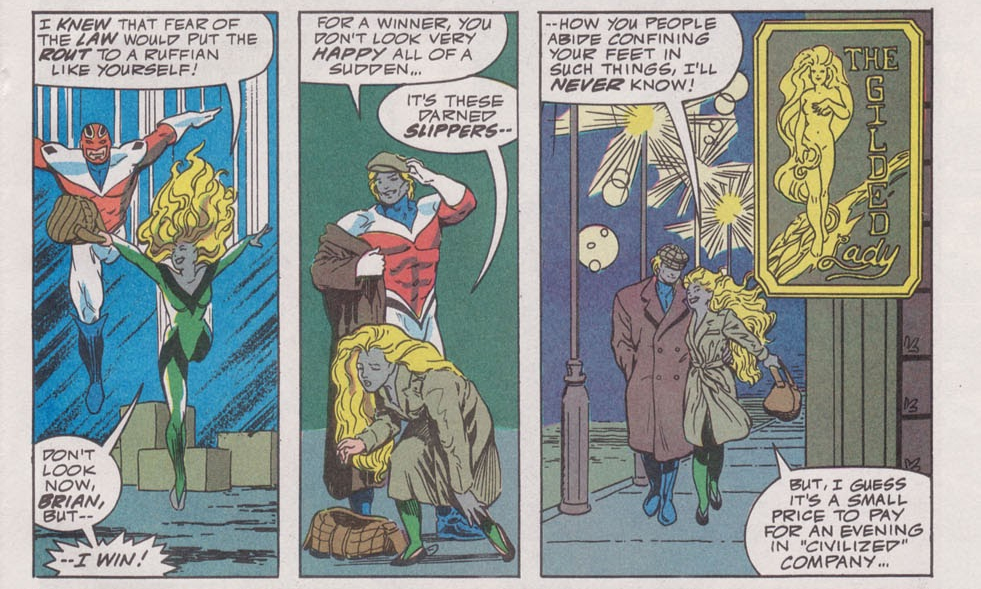
On queer subtext:
“Elements of this issue hint at Brian being a closeted non-straight person. There’s almost a closeted atmosphere to the whole night, starting with the trench coats they put on to go undercover as ‘regular people.’” -Esther
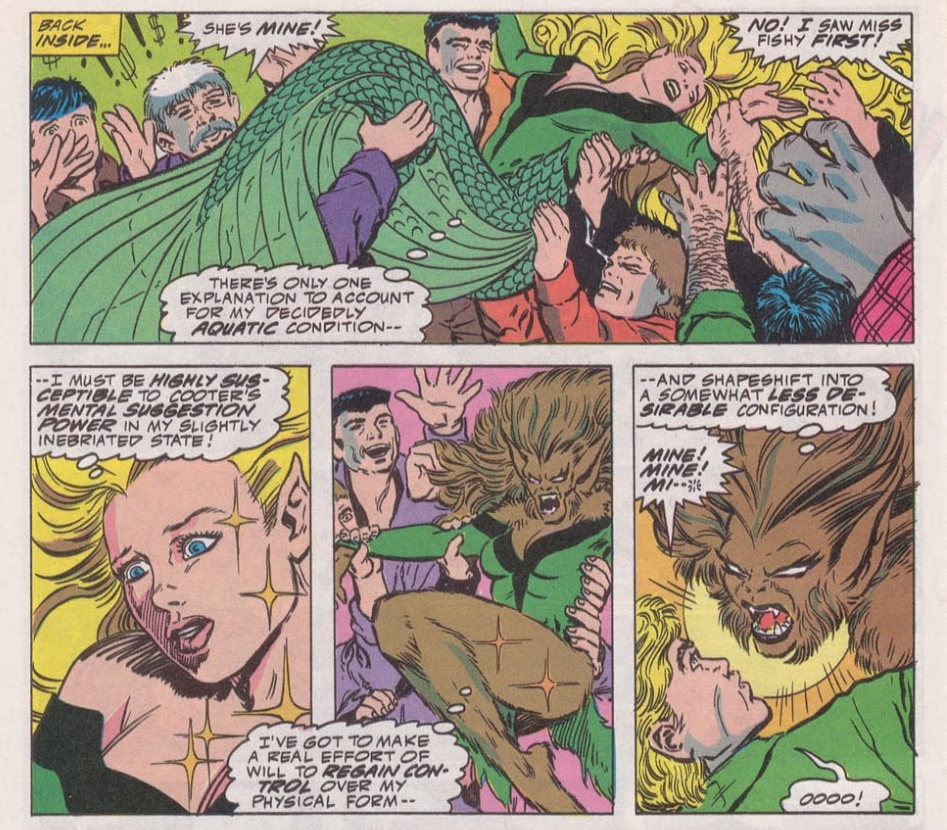
On shapeshifting:
“I think Meggan’s transformations are very effective in juxtaposition. She’s forced into this hyperfeminine siren role, and then rejects it, becoming a werewolf, a figure that resonates with hypermasculinity, to chase everyone away.” -Andrew
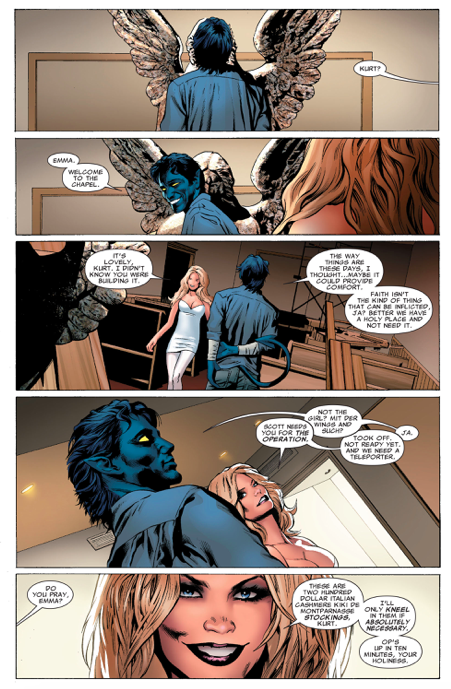
On the sexy magic of Nightcrawler:
“Whenever Kurt shows up, interesting stuff is going to happen. And they draw him sexy. That’s what they do – that’s how they get you!” -Esther
Image is from Uncanny X-Men #502 (2008), which is discussed by Richard Reynolds in his chapter “Emma Frost, the White Queen: Superpowers as the Performance of Gender,” from Esther’s edited collection Toxic Masculinity: Mapping the Monstrous in Our Heroes (linked below!).
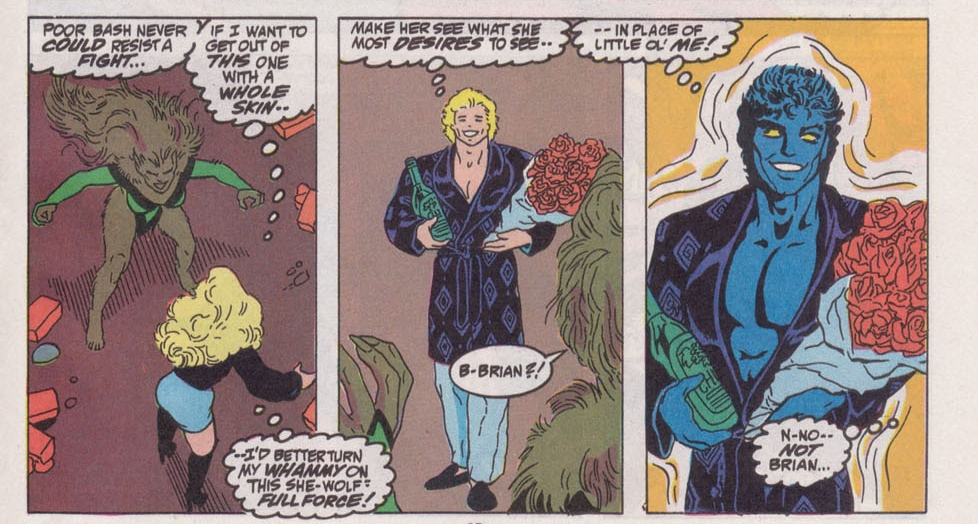
On Meggan imagining Kurt:
“Even though she’s forced into the recognition, this is Meggan directly acknowledging, for the first time, that she’s into Kurt. She’s thinking about him when he’s not around. Meggan acknowledging this is important, just like Brian acknowledging his drinking problem is important.” -Mav
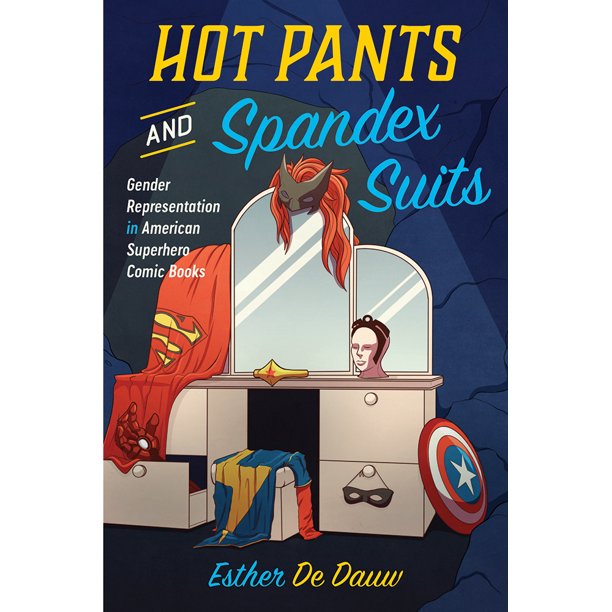
Want more Esther De Dauw?
You can find her recent book Hot Pants and Spandex Suits: Gender Representation in American Superhero Comic Books, wherever fine books are sold!
You can also check out her fabulous academic anthology, co-edited with Daniel Connell, Toxic Masculinity: Mapping the Monstrous in Our Heroes!
And! If you’d like a FREE copy of Esther’s graphic medicine-themed comic, “Missing Panels,” go ahead and email [email protected].
And as usual:
You can find Anna on Twitter (@peppard_anna) and on her podcast with Andrew and Michael Hancock, Three Panel Contrast (@3PanelContrast).
You can find Andrew on Twitter (@ClaremontRun).
You can find Mav on Twitter (@chrismaverick) and on his podcast, VoxPopcast (@VoxPopcast).
Enjoy!
-GGW Team

